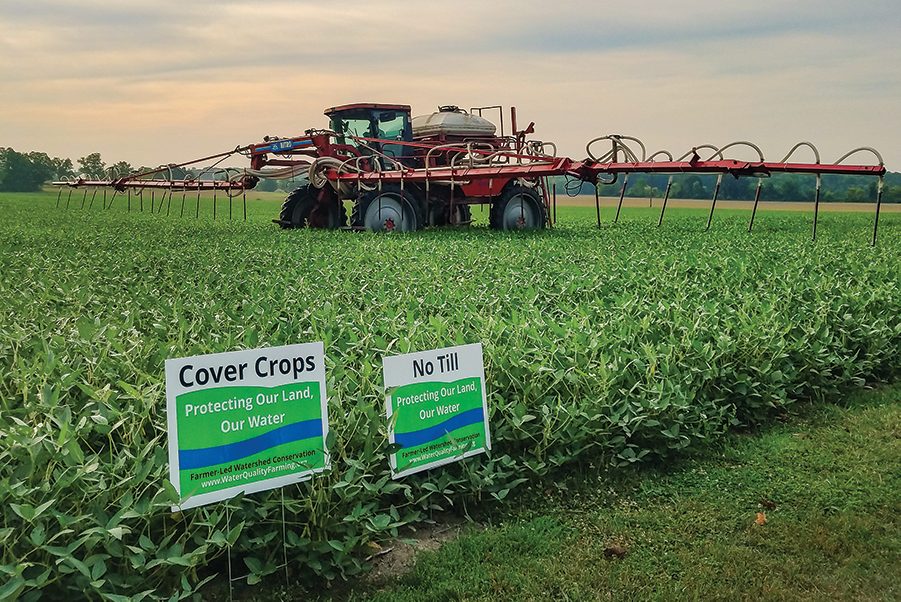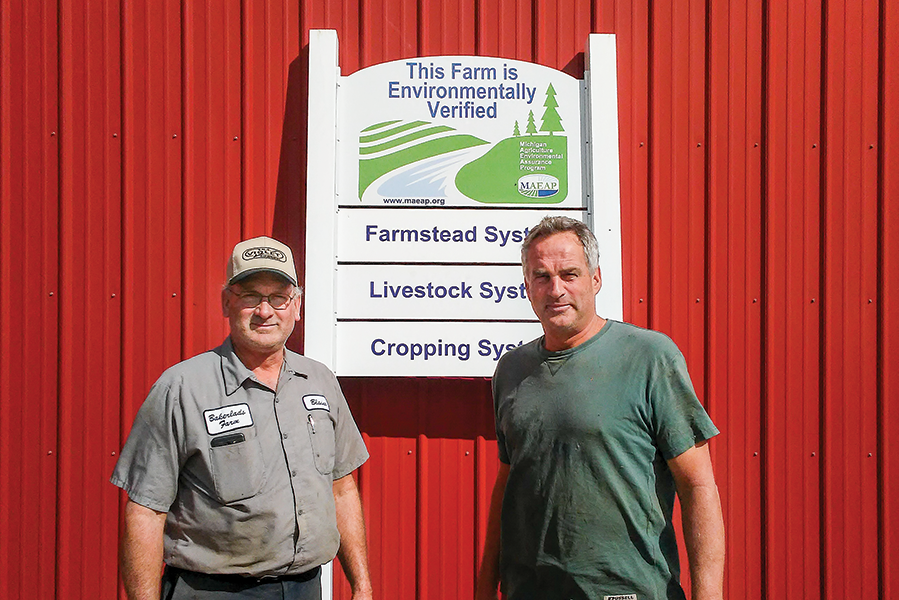Home > Michigan > Michigan Environment > MACD, Farmers and Partners Work to Improve Lake Erie’s Western Basin
MACD, Farmers and Partners Work to Improve Lake Erie’s Western Basin
Sponsored by Michigan Association of Conservation Districts

The Western Basin of Lake Erie – the fourth largest of the five Great Lakes – is a fundamental resource for recreation, wildlife and water resources for citizens and farmers alike.
Below its surface, however, lurks a growing challenge for the lake’s health and well-being.
“Algal blooms in Lake Erie’s Western Basin, caused by a number of factors like nutrient runoff, are deeply impacting the lake,” explains Lori Phalen, Executive Director of Michigan Association of Conservation Districts (MACD).
“While the causes are complex, nutrient runoff certainly plays a role in algal blooms. But there are extensive efforts to address runoff, from both point and non-point sources, including phosphorus from agriculture,” explains Phalen. “Fortunately, Michigan’s Conservation Districts and farmers are playing a pivotal role to improve the long-term water quality of the Western Lake Erie Basin and around the state.”
See more: MAEAP Program Helps Michigan Farmers Protect Their Land
Nutrient runoff happens when there are too many nutrients, like fertilizer, for the soil and plants to absorb.
The nutrients have nowhere to go, so they are carried by waterways into rivers, lakes, and streams.
Phalen says that the more nutrients that end up in Michigan’s waterways, the higher the concentrations of nutrients become, which can encourage algal growth and result in nuisance or harmful algal blooms.
“Michigan is working really hard to address this in a voluntary way,” she says. “Conservation Districts, which are local units of government, are working hand-in-hand with partners and farmers in the region.
“We are also working closely with a team of farming leaders on the Farmer-Led Water Conservation Program. This farmer-led program works within the farming community to encourage the adoption of conservation practices that reduce agricultural nutrients going into waterways.”
One way Michigan’s Conservation and farmer leaders are encouraging others to adopt more conservation practices is through the Michigan Agriculture Environmental Assurance Program (MAEAP).

MAEAP helps farmers reduce environmental pollution risks on their farm. Conservation District technicians work with farmers, utilizing MAEAP tools to help them identify practices that may be harmful to the environment and to construct a conservation plan to use moving forward.
The Farmer-Led Water Conservation Program has been very beneficial in engaging more farmers in conservation practices and MAEAP throughout the basin.
Lindsay Garrison, former District Manager of Lenawee Conservation District, says the farmer-led meetings held as part of the program have given farmers fresh details on the latest research in conservation practices and technology as it impacts Lake Erie, as well as getting to compare notes with fellow regional farmers.
See more: How Michigan Conservation Program Helps Protect Land, Soil
“This program, funded by the Fred A. and Barbara M. Erb Family Foundation, has also provided more than $23,000 in cost-share for cover crops, drainage water management, water and sediment control basins and filter strips on over 14 farms in Michigan’s portion of the Western Lake Erie Basin,” Garrison says.
Through the ongoing work of the Farmer-Led Water Conservation Program, Michigan’s Conservation Districts, the region’s farmers and many other partners, Michigan is well on its way to meeting the 40% reduction goal of nutrient runoff into Lake Erie by 2025.



